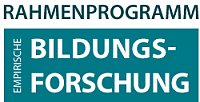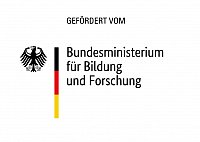cultural education for young people in rural areas (KUMULUS)
The purpose of this project is to make a substantive contribution to research on the conditions and practices within which cultural education of school-age young people takes place in highly peripheral rural areas and to drive the development of practical approaches to delivering cultural education to this target group. The work proceeds from a broad concept of cultural education (Rittelmeyer 2018) and compares across regions, using multiple methods.
The project will compare two German regions classified as ‘highly peripheral’ (cf. BBSR 2012) with evident contrasts in their cultural education work. In this way, it will illuminate the current situation as regards schemes and initiatives for and by young people in this field, exploring the regional and organisational contexts in which they are located, and centre young people’s cultural interests, foci and practices in the context of the regional structures that present them with (or limit) their opportunities for activity and action.
To this end, the project will proceed in a multidimensional manner as follows:
- We will commence by surveying the current state of opportunities for cultural education in the regions under study, in a range of institutional and informal contexts across the spectrum of cultural education, identifying their objectives and target groups.
- We will subsequently build on this with a quantitative survey of school students in years 7 to 10 in both regions, to the end of ascertaining which cultural activities they currently participate in and identifying the associated forms of activity and degrees of organisation. Alongside conventional types of cultural education, we will also record informal activities and young people’s self-directed initiatives in this respect.
- Focus groups and photo-interviews with young people from both the regions under study will identify the significance young people attribute to their cultural education practices and their activities and interests within this area, in the context of rural areas as spaces of opportunity and/or its limitation.
- Finally, we will conduct interviews with local decision-makers and providers of cultural education services in school and non-school settings. The interviews will seek to ascertain participants’ views on the relationship between young people’s cultural education and the conditions that support it in peripheral rural areas and elicit information about structures in their regions enabling networking and cooperation in this field.
In this way, the project links the level of existing projects and activities in the regions under study, in their distinct structures, with the level of their actors. Further, it investigates specific features of the interplay among these dimensions and the particular forms in which young people's cultural activities find expression.
As a cooperative endeavour with the German Youth Institute (DJI), the project seeks to pinpoint the significance of cultural education schemes to young people in rural areas and young people’s own creative initiatives, with the ultimate aim of evaluating, and initiating a dialogue on, the potential and possibilities of cultural education from the perspectives of the actors and organisations delivering it in these regions. One of its further concerns is to identify strategically helpful ways of working with other institutions, such as schools and civil society actors, in setting up and running cultural education schemes.
Project team members: M.A. Kilian Hüfner, Stefan Fehser (DJI), M.A. Eva Plappert (ehemalig), M.A. Maria Neumann (ehemalig)
Associate project team members: Dr Katja Ludwig, Dr Frank Tillmann (DJI)



